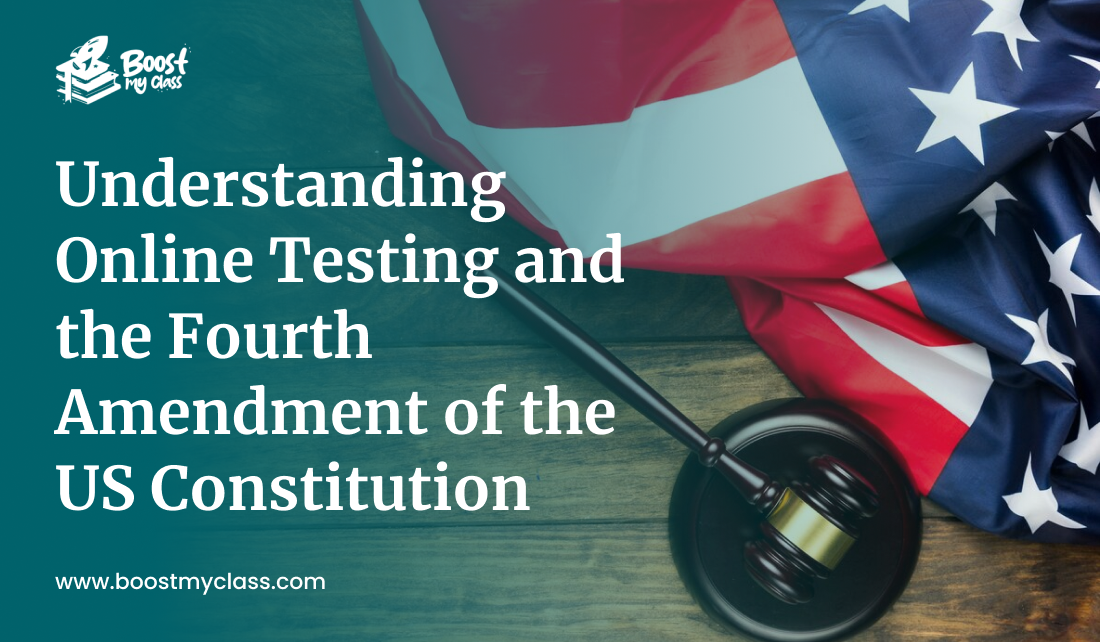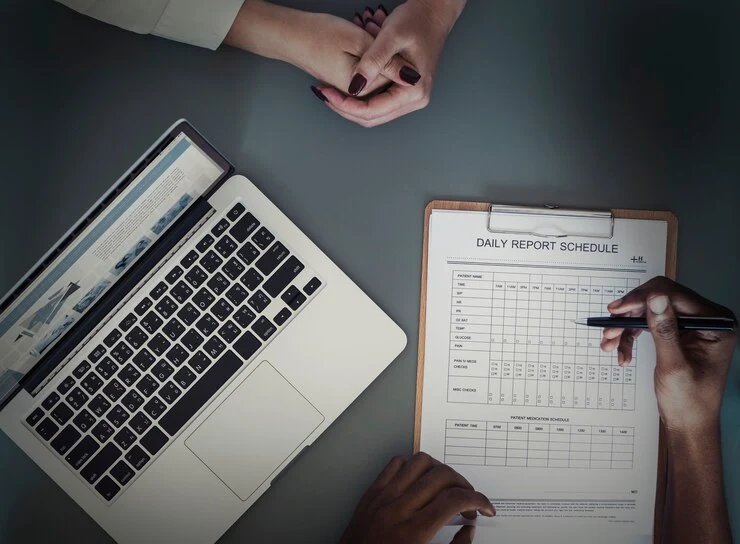Understanding Online Testing and the Fourth Amendment of the US Constitution

Digital era has seen the rise in popularity of online testing as a medium to check up on students’ knowledge. But this has also come with some downsides such as potential intrusion of students’ privacy and application of Fourth Amendment of the U.S. Constitution.
This blog will therefore look at how the fourth amendment intersects with online test; it will delve into the legal implications of online testing as well as the associated risks and benefits for students.
Online Testing Meets The Fourth Amendment

The Fourth Amendment to the US Constitution ensures that individuals are not subjected to unreasonable search or seizure.
In reference to online tests, this raises concerns about whether or not online tests are legal and what threats they pose to student privacies.
Ethical Problem
While it may be tempting to get assistance from others, pay someone to do my class is a major ethical violation. Moreover, it can lead to academic dishonesty alongside devaluing your education and undermining your colleagues’ efforts.
Instead, it would be better if you sought help from qualified tutors or even use other internet sites which give you advice while still maintaining your integrity in school work.
Legal Framework for Online Testing

The legal framework for online testing is intricate and evolving. Generally, internet-based tests are subject to the same legal standards as traditional ways of testing; thus, the Fourth Amendment offers an essential model to understand legal consequences of online testing.
Fourth Amendment & Online Testing: Legal Analysis
In relation to online test taking, there are several concerns that can be raised by the fourth amendment including:
- Reasonable Expectation of Privacy: Students may have a reasonable expectation of privacy while taking tests on line especially if it is done in private areas.
- Search and Seizure: This may occur when student data is collected and analyzed as part of an online test which could be construed as a search and seizure under the fourth amendment. This has made some students skeptical about online exam.
- Consent: This could be considered a waiver of their Fourth Amendment rights if students must agree to take exams on-line.
Impact of Online Testing on Student Privacy
The growth of web-based examinations has led to concerns about privacy invasion on learners too. These range from the likes of collective analysis or scrutiny or information such as student’s data in addition to many others.
- Student Performance Data: Online testing offers the opportunity to grasp a lot about student performance, which includes weak and strong points of them.
- Student Behavior Data: One can also pick up the information about behavior patterns and time spent on tasks from online tests.
- Student Personal Data: It is possible for personal data to be collected in online testing including student names, addresses, and other identification details.
The Pros and Cons of Online Testing

There are pros and cons associated with online testing. The benefits are:
- Increased Accessibility: Increased accessibility is one of the advantages that comes with using online testing especially for persons with special needs or those who cannot access traditional exams.
- Improved Accuracy: As compared to traditional tests, internet examination provides outcomes that are more precise as it dispels possibilities of human error.
- Cost Savings: Online testing can be cheaper than traditional testing because there is no need for physical test items nor invigilators’ services in this case.
However, there are risks involved in online tests too like:
- Invasion of Privacy: This form of assessment could have negative impacts on student privacy since information such as student data may be collected and analyzed during the process.
- Technical Issues: Sometimes technical issues may occur during on line assessments such as connection problems; system crash among others.
- Academic Integrity: It is also possible that online testing may threaten the principles of academic integrity- involving cheating with others.
Ending
To sum up, it is true that the Fourth Amendment of the US Constitution and internet test are interlinked and demanding subjects. Internet testing can ease accessibility while enhancing accuracy; however, it has serious implications on student privacy and academic ethics. Thus, being aware of the law in respect to e-testing as well as potential dangers and advantages enable scholars to select what they want from school wisely. For example, recognize that buying someone to help cheat through your course work is a very unethical act; therefore, preserving an educational journey’s moral values should be your objective.
I am a Natural sciences enthusiast with a profound passion for Biology, Chemistry, Statistics, and Physics. Completed more than 1055+ online classes and exams for the students. So they score high and stress less!
Discount
On Your First Order




